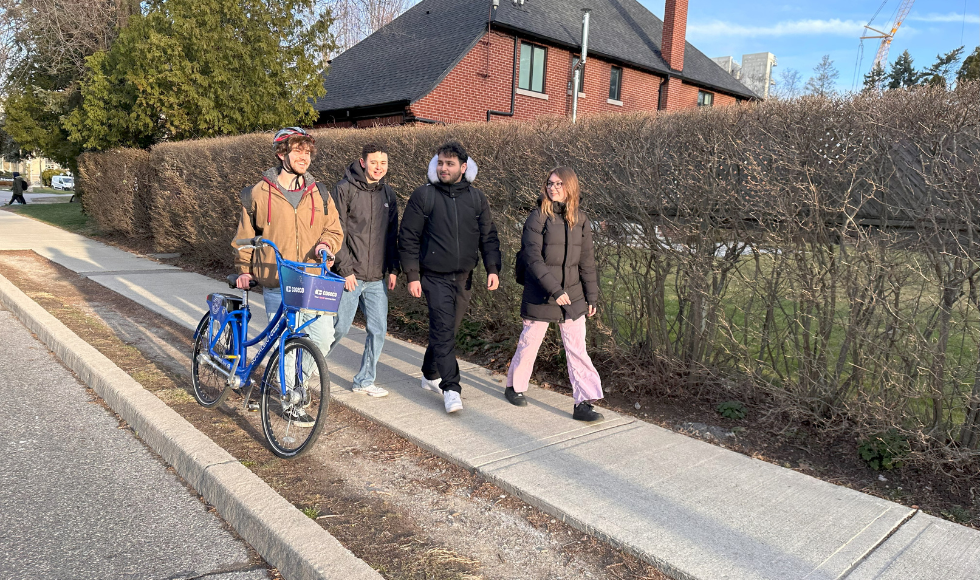A greener, healthier way to get to campus

Student team members actively traveling to campus. From left-to-right: Kyle McMaster, fourth-year Software Engineering student, Carter Jones-Robinson, second-year Commerce student, Behzad Janjua, first-year Engineering student; and Kiara Rahm, third-year honours Life Sciences student.
Good news for anyone hoping to travel to McMaster and its surroundings in a sustainable way: Thanks to a group of students, the revitalized Parking Services website has a new focus on sustainable and active transportation.
Students in the SUSTAIN 2SS3 course worked with Parking Services and the Office of Sustainability to shift the site’s focus from driving and parking to highlight multiple commuting options and offer resources and information for walking, biking and public transit.
“We wanted to show how attractive active travel can be, on a personal level,” says student Kiara Rahm.
“We started with the most human-powered mode of walking and highlighted it as a quick and cost-effective way to get to campus by sidewalk or nature trail.”
As students, “we want to know that we can get to campus quickly, reliably, and at no cost,” says Behzad Janjua. “Active travel is a great habit to form now that we can take with us when we graduate; it’s a bonus that it’s also good for our brains!”
Moving the body energizes the mind, and a little goes a long way, says Jennifer Heisz, associate professor and Canada Research Chair in the department of Kinesiology.
“Research shows that even a short walk is good for the brain and can boost mood and focus.”
You can double down on the benefits of active travel by choosing to walk or bike in nature by taking a trail or a tree-lined route.
“Studies show that spending time in nature can reduce stress, enhance mood, and increase attention,” said Wayne Terryberry, coordinator of outdoor recreation and natural lands at the university.
The initiative also highlights the ways in which sustainable mobility creates a safer and more connected community.
“In addition to the personal benefits they confer, walking and cycling also contribute to making communities safer and friendlier,” says Professor Antonio Paez from the School of Earth, Environment and Society in the Faculty of Science.
That aligns with one of the project’s broader messages: Integrating minor changes in daily routines, like choosing active modes of transportation, can lead to significant improvements in physical and mental well-being.
To learn how to make your commute to campus more sustainable, visit the Parking McMaster website.


